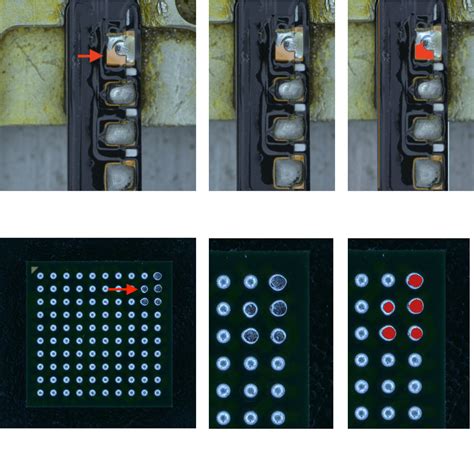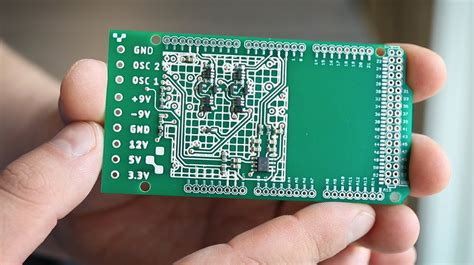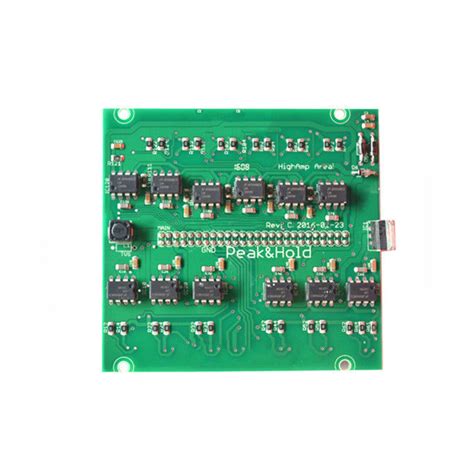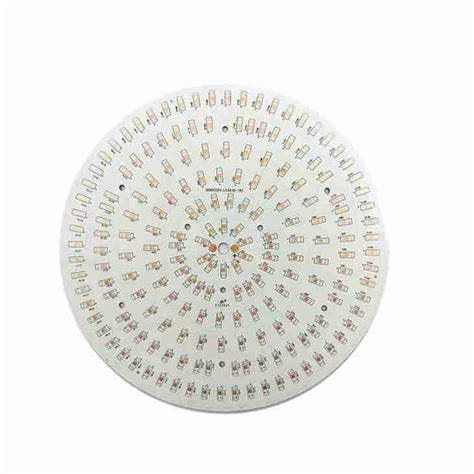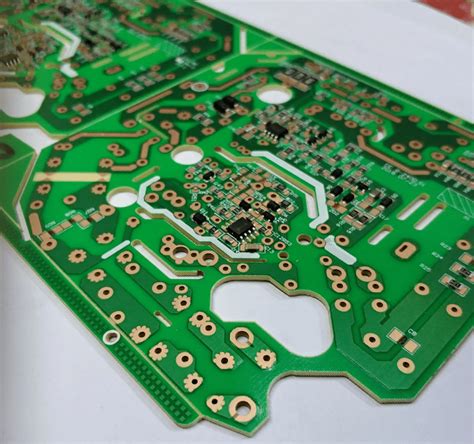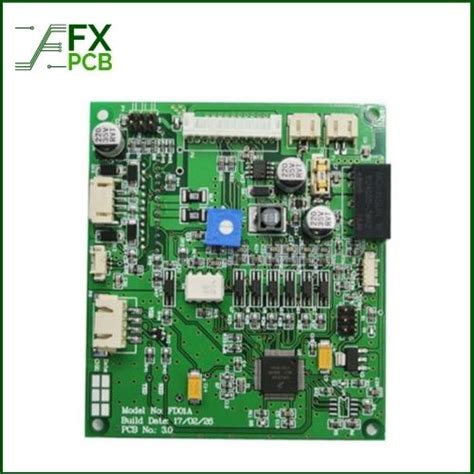Essential Guide to PCBA Services for Your Electronic Projects
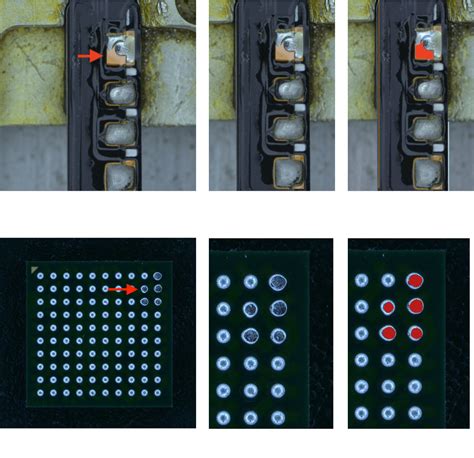
Key Takeaways
When embarking on electronic projects, understanding PCBA services is crucial. PCBA, or Printed Circuit Board Assembly, encompasses a range of processes that convert a printed circuit board into a functional unit. Key factors to consider include the specific services offered, which can vary significantly from one provider to another. By leveraging pcb assembly services, projects can benefit from more efficient production timelines and enhanced quality outcomes. Engaging with experienced providers not only streamlines the manufacturing process but also mitigates risks associated with common challenges such as component shortages and assembly errors. Therefore, when evaluating potential service providers, it is essential to prioritize those that demonstrate strong quality control measures and have a proven track record in delivering high standards. Ultimately, making informed decisions regarding your partner for pcb assembly can significantly influence the success of your electronic endeavors and ensure that your projects meet their intended goals with high-quality results.
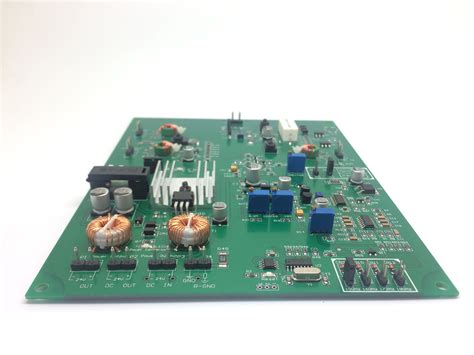
Introduction to PCBA Services: What You Need to Know
Understanding PCBA services is crucial for anyone engaged in electronic projects, from hobbyists to established companies. At its core, PCB assembly—often abbreviated as PCBA—involves the process of soldering electronic components onto a printed circuit board (PCB) to create a functional assembly. This service encompasses a variety of stages, including design optimization, component procurement, assembly, and testing.
A significant part of the PCBA process is the design phase, where engineers create schematics that guide the layout of components on the PCB. Proper design is essential because it influences the performance and reliability of the final product. After design validation, providers assist in sourcing quality components to ensure that the assembly meets both functional and regulatory standards.
One of the key advantages of utilizing PCBA services lies in increased efficiency. By outsourcing complex tasks like soldering and quality control to specialized providers, organizations can focus on their core competencies while ensuring that their products are manufactured correctly. This strategic alliance often leads to reduced time-to-market and improved overall project outcomes.
In summary, understanding PCBA services helps stakeholders navigate complex electronic projects efficiently. Whether it is about optimizing designs or choosing high-quality providers for assembly, recognizing these fundamentals can significantly impact success in delivering robust electronic solutions.
| Aspect | Description |
|---|---|
| Core Process | PCB assembly involves soldering components onto PCBs |
| Design Importance | Effective design ensures reliability and functionality |
| Efficiency Gain | Outsourcing leads to faster project completion |
| Quality Control Benefits | Engaging experts enhances product standards |
Key Processes in PCBA: From Design to Production
The journey of PCB assembly—often referred to as PCBA—begins with meticulous design. This crucial phase involves schematic capture and layout design, where engineers convert ideas into physical blueprints. Utilizing specialized software tools, it’s essential to ensure that the design adheres to electrical and mechanical specifications. Following the design phase, the next step is prototype development, where initial versions of the PCB are fabricated and tested. This validation process is vital for identifying potential issues before moving to mass production.
Once prototypes are approved, the production phase commences. This includes sourcing components, which is pivotal in ensuring that high-quality materials are utilized for durability and performance. Components are then assembled onto the PCB through various techniques such as Surface Mount Technology (SMT) or Through-Hole Technology (THT). A key aspect here is observing precision in placement and soldering to maintain integrity.
As production scales up, effective communication between project stakeholders becomes paramount. Close collaboration between engineers and assembly teams can help mitigate risks linked to manufacturing delays or quality concerns. To enhance production efficiency, operators often adopt lean manufacturing principles, constantly striving for process optimization.
"Effective design is not just about aesthetics; it’s about functionality that meets project requirements."
In conclusion, understanding these key processes in PCBA significantly contributes to achieving efficient production workflows and quality outcomes in your electronic projects. By navigating each phase with care—from initial design through assembly—you can ensure that your final product meets high standards of performance and reliability essential in today’s competitive market.
Benefits of Utilizing PCBA Services for Your Projects
Utilizing PCBA services in your electronic projects offers numerous advantages that can significantly enhance both the efficiency and quality of your final product. One of the most notable benefits is the access to specialized expertise and technology that comes with established pcb assembly service providers. These professionals are well-versed in the complexities of printed circuit board assembly, enabling them to handle intricate designs and layouts that may pose challenges for in-house teams. Furthermore, outsourcing pcba tasks allows companies to focus on their core competencies, potentially leading to faster product development timelines.
Additionally, utilizing PCBA services can streamline your project’s production process. By leveraging advanced machinery and automated assembly techniques, these services ensure consistency and precision throughout production runs. This results not only in improved yield rates but also in reduced waste—an essential factor when considering both cost-efficiency and environmental impact.
Moreover, working with a reputable pcb assembly service can offer enhanced flexibility when adapting to market changes or customer demands. With a robust network of suppliers, these providers can source components swiftly, minimizing lead times and allowing for quicker responses to unexpected challenges.
In summary, investing in professional pcba services is a strategic move for any electronic project. Not only does it enhance product quality through expert handling, but it also contributes to greater operational efficiency and adaptability in a fast-paced industry.
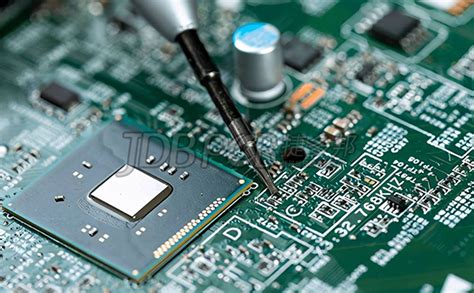
How to Choose the Right PCBA Service Provider
Selecting the right PCBA service provider is crucial for the success of your electronic projects. To begin with, assess the provider’s expertise in pcb assembly and ensure they have a solid track record of delivering high-quality services. Look for companies that possess advanced technology and equipment, as these factors greatly influence the precision and efficiency of pcba production. Furthermore, it is important to evaluate their production capabilities—ensure they can handle your specific requirements, including volume, complexity, and speed of delivery. Communication is another key factor; choose a provider that maintains clear and consistent communication throughout the process. This will help in addressing any potential issues early on and ensure that your expectations are understood and met. Don’t underestimate the power of references; seeking feedback from past clients can give you valuable insight into a company’s reliability and quality standards. Finally, compare pricing structures but remember that the lowest price isn’t always indicative of value; balance cost with quality to achieve optimal results for your project. By carefully considering these factors, you can confidently choose a PCBA service provider that aligns with your project needs and ensures satisfactory outcomes.
Common Challenges in PCBA and How to Overcome Them
When it comes to pcb assembly, various challenges can arise, potentially affecting the success of your electronic projects. One of the most prevalent issues is design errors, which can lead to costly delays and rework. To mitigate this, it is crucial to conduct thorough reviews and testing of the pcba design before proceeding to production, ensuring that all specifications are met. Another significant challenge is component sourcing, particularly when dealing with obsolete or rare parts. Establishing strong relationships with reliable suppliers can help secure necessary components promptly, minimizing disruptions. Additionally, manufacturing defects such as soldering issues or misalignment might occur during the pcb assembly process. To combat these defects, implementing rigorous quality control measures throughout production is essential. Utilizing automated inspection technologies can greatly enhance accuracy and reliability in identifying defects early in the process. By addressing these challenges proactively and maintaining clear communication with your pcba service provider, you can ensure a smoother workflow and higher quality results in your electronic projects.

Quality Control in PCBA: Ensuring High Standards
Quality control is an indispensable component of the pcb assembly process, ensuring that every stage—from design to final production—meets stringent standards. It involves a series of systematic checks and balances that help identify potential defects before the product reaches the end user. During pcba fabrication, quality control examines various elements, including solder integrity, alignment of components, and overall circuit functionality. To achieve high standards in pcb assembly, manufacturers often employ advanced technologies such as automated optical inspection (AOI) and x-ray inspection to detect common issues like shorts or misalignments. These measures not only reduce material waste but also enhance the reliability of the final product. Furthermore, maintaining thorough documentation throughout the process allows for traceability and accountability, which are essential in identifying specific areas for improvement. By implementing robust quality control protocols, organizations ensure their pcba services yield high-quality results that can withstand the demands of modern electronic applications. This commitment to quality ultimately helps build trust with clients and fosters long-term partnerships in an increasingly competitive marketplace.
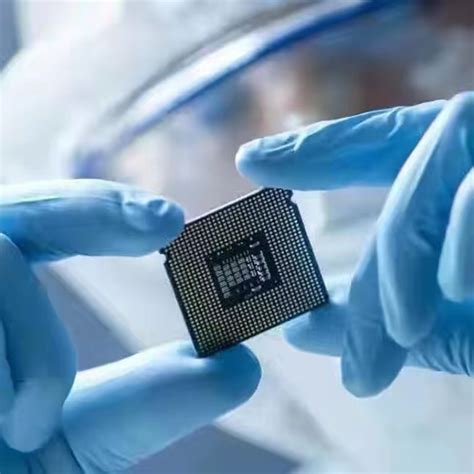
Future Trends in PCBA Services for Electronics
As the electronics industry continues to evolve at a rapid pace, PCB assembly services are set to undergo significant transformations to meet the growing demands for innovation and efficiency. One key trend is the increasing adoption of automation and smart manufacturing solutions in PCBA processes. Automated systems not only enhance productivity but also improve precision, thereby elevating the quality of electronic products. Additionally, the integration of advanced technologies such as Artificial Intelligence and Machine Learning is expected to optimize quality control measures, allowing for real-time monitoring and adjustments during production.
Another noteworthy trend involves a focus on sustainability within PCB assembly operations. With growing environmental concerns, more companies are seeking eco-friendly materials and processes that minimize waste and reduce the carbon footprint associated with manufacturing. This shift towards sustainable practices not only caters to consumer preferences but also aligns with global regulatory standards. Furthermore, as consumer electronics become more complex, there is an ongoing evolution in the design capabilities offered by PCBA providers. This includes flexible printed circuit boards (FPCBs) and multi-layered designs that support more intricate functionalities while conserving space.
The rise of Internet of Things (IoT) devices also poses new opportunities for PCBA services, requiring manufacturers to adapt quickly to diverse specifications and high-volume production demands. As industries increasingly rely on interconnected devices, service providers will need to enhance their capabilities in order to accommodate rapid changes in design requirements and scalability.
In summary, the future of PCB assembly services is headed towards greater automation, sustainability efforts, innovative design solutions, and responsiveness to emerging technologies—all aimed at delivering high-quality results that fulfill both functional requirements and environmental responsibilities.
Conclusion: Maximizing Your Success with PCBA Services
In today’s fast-paced electronic industry, pcb assembly and PCBA services play a pivotal role in determining the success of your projects. By selecting the right PCBA provider, you can significantly enhance your product development timelines while ensuring cost-effectiveness. It’s crucial to understand that the quality of pcb assembly directly impacts the overall performance and reliability of your electronic devices. Advanced techniques in PCBA, such as surface mount technology and automated assembly processes, enable high precision and efficiency during production. Moreover, engaging with a provider that emphasizes rigorous quality control measures will safeguard against potential defects, thereby improving overall customer satisfaction. By leveraging these services effectively, businesses can not only meet their project deadlines but also increase their market competitiveness. As you move forward, consider how strategic partnerships with skilled PCBA service providers can bolster your production capabilities and drive innovation within your electronic projects.

Conclusion: Maximizing Your Success with PCBA Services
In today’s fast-paced electronics market, understanding the intricacies of pcba services is vital for achieving optimal results in your projects. By leveraging pcb assembly techniques, you can streamline the production process while ensuring high-quality outputs. The benefits of working with experienced pcba service providers range from increased efficiency and cost-effectiveness to access to advanced technology and expertise. To maximize your success, it’s imperative to choose a provider that aligns with your specific project requirements and can navigate common challenges effectively. This not only safeguards your investments but also enhances the performance of your final product. Therefore, as you embark on your next electronic project, remember that strategic selection of pcba services will play a pivotal role in realizing your vision and bringing innovative solutions to market.
FAQs
What is PCBA?
PCBA stands for Printed Circuit Board Assembly and refers to the process of assembling electronic components onto a printed circuit board (PCB) to create a functioning electronic product.
What services are included in PCBA?
PCBA services typically include design support, component sourcing, PCB fabrication, assembly, and testing. Each of these processes is essential to ensure high-quality results in the production of electronic projects.
Why should I use professional PCBA services?
Utilizing professional pcb assembly services can significantly enhance the efficiency and quality of your project. These providers possess specialized expertise, advanced technologies, and quality control measures that help mitigate common issues and ensure reliable outcomes.
How do I choose a good PCBA provider?
When selecting a PCBA service provider, consider their experience, service offerings, customer reviews, and production capabilities. It’s crucial to ensure they use high-quality materials and adhere to relevant industry standards.
What are the common challenges in PCBA?
Some common challenges include component shortages, manufacturing defects, and integration issues. However, with proper planning and collaboration with an experienced PCBA provider, these challenges can often be overcome effectively.
How important is quality control in PCBA?
Quality control is paramount in ensuring that the final product meets all specifications without defects. A rigorous quality assurance process helps detect issues early in production, minimizing costs associated with product recalls or repairs.
What are future trends in the PCB assembly industry?
The industry is evolving with advancements such as automation, increased demand for miniaturization of components, and enhancements in testing technologies. Staying informed about these trends will help you make better choices regarding your electronic projects.

